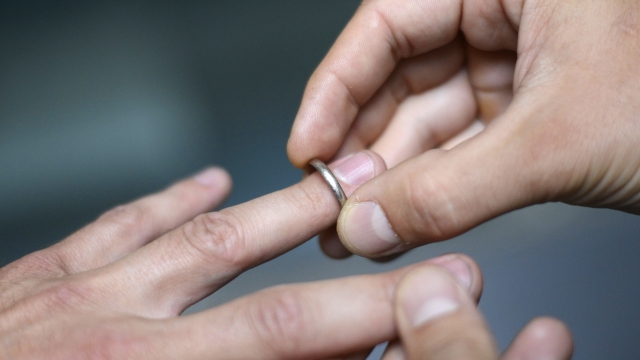Up until pretty recently, society has pretty much ignored the idea of females pleasuring themselves. Hell, up until recently, it was denied that females could pleasure each other, and I think pretty much everyone here knows that we definitely can do that.
Even though it’s becoming more mainstream these days, there are still a lot of misunderstandings surrounding female masturbation – and we think it’s time to start clearing the air.
1. It’s more common than you’re led to believe.
We don’t talk much about female masturbation, but that doesn’t mean it doesn’t happen. (Well, we talk about it here at KitschMix, but most of society still doesn’t.)
According to a study by The Kinsey Institute (yes, that Kinsey Institute), more than half of women aged 18-49 masturbate at least once every three months, whether they have a partner or not.
The myths surrounding female masturbation still exist, even though the stigmas are starting to fall away – and these myths affect the way women feel about it, as well as the way they do (or don’t) give themselves a little self-love.
2. It’s good for your health.
Masturbation provides many of the same health benefits that sex does – including increased blood flow and endorphin production. According to Dr. Nicole Prause, PhD, a sex researcher at UCLA in California, “That may explain why there’s a clear mood benefit, even if you don’t orgasm.
It takes your mind [off your worries] while activating areas of the brain associated with pleasure.” While men are more likely to talk about the stress relief they get from masturbating, it has the same emotional benefits for both men and women.
3. It makes you more confident in the bedroom.
Sexuality educator Yvonne K. Fulbright, PhD, says “It puts you in touch with your desires and gives you a chance to know your own body. […] Experimenting with what feels good and makes you respond positively can lead to better sexual experiences, both alone and with a partner.”
This means that self-love actually has the ability to help you see what gets your motor running, without worrying about taking too long and your partner getting bored. (Although, if you’re with a partner who’s worth the sexual attention, she’ll understand if you have some difficulty reaching climax.)
4. It helps with postmenopausal sexual dysfunction.
That sounds like a complicated problem, but it’s actually pretty common. During menopause, many women experience a number of changes, including vaginal narrowing, decreased blood flow to the genital region, dryness, and a lack of desire.
According to Judi Chervenak, MD from Montefiore Medical Center in New York City, “The vagina can actually narrow, which can make intercourse and vaginal exams more painful.” Chervenak says that masturbation with a water-based lubricant can help prevent these problems, or at least help ease the symptoms.
5. There are no rules.
When men masturbate, it’s generally a self-quickie that results in an orgasm – but female masturbation doesn’t have to be like that. You’ll still get the large majority of the health benefits, whether you reach orgasm or not.
Dr. Fulbright says, “Rushing can make it less enjoyable, and so can focusing too much on orgasm. Give yourself time to touch all parts of your body or try different positions, and don’t feel pressure to climax.
6. Toys don’t actually cause sex problems later down the road.
The idea that a sex toy diminishes your sensitivity is founded in misunderstandings. More likely, the women who use sex toys already had diminished responsiveness before they started using the sex toys.
In fact, according to a study by Ashley Leonard at Robert Morris University, nearly half of women between the ages of 18 and 60 have used sex toys, either alone or with a partner.
A dildo can help to stimulate the G-spot, which may be difficult to do otherwise, and a vibrator stimulates the nerve endings in the clitoris. Dr. Prause says, “Put simply, if it feels good, go for it.”
7. Many girls start masturbating before they even know what that means.
Pleasuring yourself usually starts as something completely innocent, because it feels good – even though there’s no sexual connection at that age. It’s actually very common to start before the age of six.
Obviously, this isn’t a sexual thing at this age, but children understand what feels good to them, and the release of chemicals in the brain reinforces the idea that self-love = very good.
As long as it’s not interfering with their daily lives, it’s a really good thing – especially if it helps keep them from becoming sexually active with a partner at an age when they’re not emotionally ready for it.
8. Most women self-stimulate during sex with a partner, too.
That’s not necessarily because they’re “less sensitive” – it’s because it feels better when you’ve got more going on down there (at least for many of us). If you’ve always had trouble reaching orgasm and want to fix it, try incorporating a little bit of self-love into your sexual routine with your partner.
In some cases, your partner may decide to “take over” for you – masturbation helps you communicate what you enjoy without having to say a word. (Just make sure your partner knows that it’s not because she’s not making you feel good – it’s about feeling better than good.)
9. Women totally watch porn, too.
Despite the fact that the large majority of porn is designed by and for men, many women enjoy watching skin flicks when they’re pleasuring themselves.
Women tend to be more imaginative in the bedroom, and watching porn gives them new ideas of things to try – or, it can simply be a way to “act out” fantasies they have no desire to actually participate in.
The type of porn you watch actually has very little to do with your sexuality, too – many straight women enjoy watching lesbian and gay male porn, and many lesbians enjoy heterosexual and gay male porn. Your pornographic preferences don’t define your sexuality.









